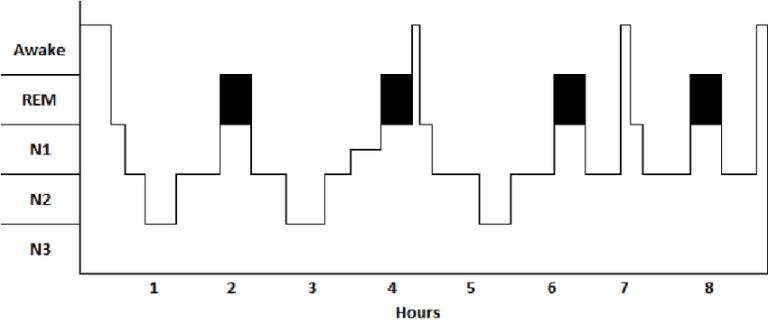Sleep Therapy
Do you have trouble falling asleep, do you wake up at night or too early in the morning, or combinations of these? Do you sleep too often, too long or too short? Are you unable to sleep without sleep medication?
The day influences the night and a bad night influences your day. On the other hand, your feelings, thoughts, actions and environment influence your sleep. Sleep deprivation is therefore a 24-hour problem. Chronic insomnia has consequences for your physical and mental health. Scientific research proves that it leads to an increased risk of cardiovascular disease, type II diabetes, obesitas, alzheimer, breast cancer, chronic pain, anxiety, depression and (traffic) accidents.
-> Sleep therapy focuses on sleeping problems like insomnia, hypersomnia and biorhythm problems.
-> Sleep problems can have multiple causes and therefore I will focus on biological, psychological and social factors together with you.
-> As a sleep therapist I can also provide aftercare for apnea, restless legs and parasomnies.
The sleeping needs of every person vary and nobody sleeps exactly according to “the book”. But recent scientific studies indicate that for adults, roughly 7 to 8 hours of sleep is healthy, containing 4 or 5 ‘sleep cycles’ of approximately 1.5 hours per night. A healthy night’s sleep looks like this:

Awake: it is normal to wake up briefly during the night.
REM sleep: this is the dream sleep where your eyes move fast, the brain, heart and breath activity are high and the muscles are completely relaxed. REM sleep is important for mental recovery;
N1: light sleep, where you can easily wake up, your body and mind are starting to relax;
N2: light sleep, it is harder for you to wake up, your brain activity slows down but you still have short moments of activity;
N3: deep sleep, slow brain waves, brain, heart and breath activity are at the lowest level, waking up is hard and disorientation occurs. Deep sleep is important for physical recovery.
As a sleep therapist I am a specialist in achieving positive behavioral change. We work on the duration, quality and time of your sleep. We take a closer look at your 24-hour schedule, to break through the vicious circles of sleeping badly. You can learn to sleep better using different methods:
• Self-efficacy, you receive breathing and relaxation exercises (self-regulation) to fully relax mentally and
physically and thus to put the sleep center in your deep brain to sleep;
• Theoretically by providing insights into sleep behavior, nutrition and physical activity (psycho-education and
sleep hygiene advice);
• Technical with sleep restriction (reducing the time in bed) and stimulus control (the bed is only for sleeping
and making love);
• Practically by improving your self-awareness, learning to feel, relax and focus and learning to turn off your
thinking; (mindfulness);
• Through assertiveness training (saying no, setting limits) and time management;
• Cognitive behavioral therapy by learning to think and act positively or neutrally again, by being solution-
oriented and finding a healthy way to deal with problems (coping style);
• Through a solution and goal-oriented approach instead of a problem-oriented approach.
Sleep deprivation, you can beat it!